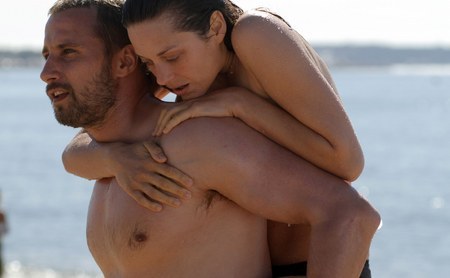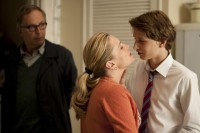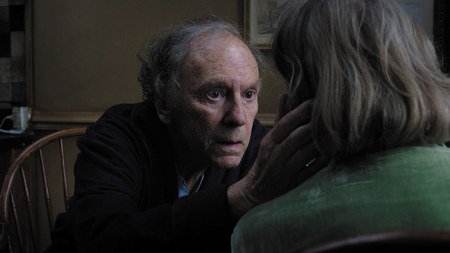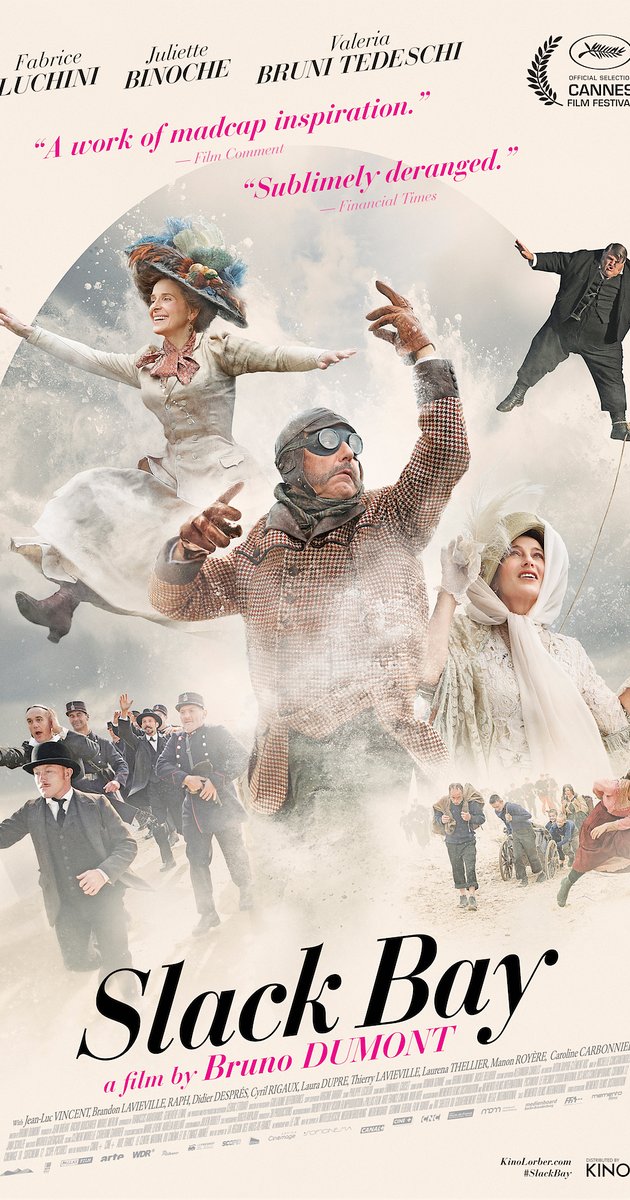David here, heralding the return of the BFI London Film Festival – Craig and I are back again, and we’ll be bringing you various updates across the next two weeks. The 56th festival kicked off last night with the European premiere of Frankenweenie, but my first round-up post has more of a Francophile feel to it…
 Matthias Schoenaerts and Marion Cotillard in 'Rust & Bone'
Matthias Schoenaerts and Marion Cotillard in 'Rust & Bone'
With Rust & Bone, director Jacques Audiard is still in the business of tempering abrasive, down-on-their-luck characters in the French banlieues with a style that smears the poetic and the aggressive into one confrontational melting pot. It seems to be part of Audiard’s intention to throw severe miserablism at his audience just to see if they can survive. Still, such a vibrantly aggressive film with a charged sense of the physical is a rare thing, and Audiard works to balance the lead performances by Marion Cotillard (whom Jose was just raving about) and Matthias Schoenaerts between a dark emotional percolation and a keen awareness of their physicality and the relationship of their bodies. Cotillard is expert at scorching her character Stephanie’s lust and enhanced sense of her own body onto the screen, and the building frisson between Stephanie and Schoenaerts’ Ali happens less through dialogue (the brisk, careless attitude of Ali puts paid to that) and more through the relation of their bodies and faces. The film may tilt wildly into grandiose dramatics or voracious sentimentality and some notes may strike an off chord, but they are all part of Audiard’s passionate approach; they reflect the beautiful, distorted, uncomfortable mess of a world that these two people inhabit. The rust rubs up against the bone and they spark, hurting but creating fire and feeling. (B+) (full review)
 Wild in a different way is the narrative conceit of François Ozon’s In the House, confident again after the successful pastiche. French literature teacher Germain (Fabrice Luchini), despairing of his students’ lack of talent and effort, is intrigued by Claude’s (Ernst Umhauer) piece on the homelife of his best friend Rapha (Bastien Ughetto). Pushing his new protégé to enliven his continuing stories, the lines between fiction and reality blur as Claude, Germain and Germain’s wife Jeanne (Kristin Scott Thomas) become more invested and obsessed with the lives of Rapha’s family. There are echoes of younger Ozon in the cautious dissection of a middle-class family home by an Umhauer’s enigmatic potboiler, but the director sticks less rigidly to the theatrical setting of Water Drops on Burning Rocks and 8 Women and delineates various domestic and public spaces with distinctive mise-en-scene. With this consistent shift in setting come the frivolous shifts in tone – Claude’s interpretation of Germain’s literary suggestions remain unpredictable to all but him, and so the audience is thrown between caustic parody, sensual romance, ghostly thriller, and myriads of diverse moods with gleeful abandon. Ultimately, Ozon makes little of what amounts to a toe-dip in social politics, but it skips along at a brisk pace and Umhauer’s pleasingly chilled performance is matched by Emmanuelle Seignier’s melancholy, spaced ennui as Rapha’s mother. In the House is a unique prospect and even if could’ve been so much greater, it’s a pleasant way to pass a couple of hours. (B-)
Wild in a different way is the narrative conceit of François Ozon’s In the House, confident again after the successful pastiche. French literature teacher Germain (Fabrice Luchini), despairing of his students’ lack of talent and effort, is intrigued by Claude’s (Ernst Umhauer) piece on the homelife of his best friend Rapha (Bastien Ughetto). Pushing his new protégé to enliven his continuing stories, the lines between fiction and reality blur as Claude, Germain and Germain’s wife Jeanne (Kristin Scott Thomas) become more invested and obsessed with the lives of Rapha’s family. There are echoes of younger Ozon in the cautious dissection of a middle-class family home by an Umhauer’s enigmatic potboiler, but the director sticks less rigidly to the theatrical setting of Water Drops on Burning Rocks and 8 Women and delineates various domestic and public spaces with distinctive mise-en-scene. With this consistent shift in setting come the frivolous shifts in tone – Claude’s interpretation of Germain’s literary suggestions remain unpredictable to all but him, and so the audience is thrown between caustic parody, sensual romance, ghostly thriller, and myriads of diverse moods with gleeful abandon. Ultimately, Ozon makes little of what amounts to a toe-dip in social politics, but it skips along at a brisk pace and Umhauer’s pleasingly chilled performance is matched by Emmanuelle Seignier’s melancholy, spaced ennui as Rapha’s mother. In the House is a unique prospect and even if could’ve been so much greater, it’s a pleasant way to pass a couple of hours. (B-)
 Jean-Louis Trintignent holds Emmanuelle Riva in 'Amour'
Jean-Louis Trintignent holds Emmanuelle Riva in 'Amour'
As you might expect, Michael Haneke’s Amour is pretty much the opposite proposition. Haneke presents the story’s end before his title card prompting a rewind to the beginning. The udience knows they’re in for a wearing, emotional experience to reach the beatific sight of a decomposing body surrounded lovingly by petals. We’re in familiarly confrontational territory with Haneke here, but the title suggests the tender centre of this enterprise, inhabited by breathtaking work from Jean-Louis Trintignant and Emmanuelle Riva. They play a wealthy, elderly French couple whose life becomes confined to their apartment after Anne (Riva) suffers a stroke. Haneke’s camerawork is predominantly his usual tableau-style observation, but increasingly, as Anne worsens, the close-ups proliferate. The actors and the camera draw us deeper into the nauseatingly devastating slide towards death. Such is the power of Anne’s irascible pride that Haneke feels intrusively cruel when he won’t let her escape his camera, cutting across the apartment to catch her wheelchair zooming away from her husband. Questions niggle about why Haneke felt the need to film such a painful story, but it gains infinite legitimacy and value from the presence of Trintignant and Riva, who uncover every emotional nook and cranny of the wounded dignity and painful decisions involved in such a lengthy and dedicated love. (B+)
Follow David on Twitter @randomfurlong for instant, 140-character screening reactions.
 Monday, October 2, 2017 at 10:35AM
Monday, October 2, 2017 at 10:35AM 





